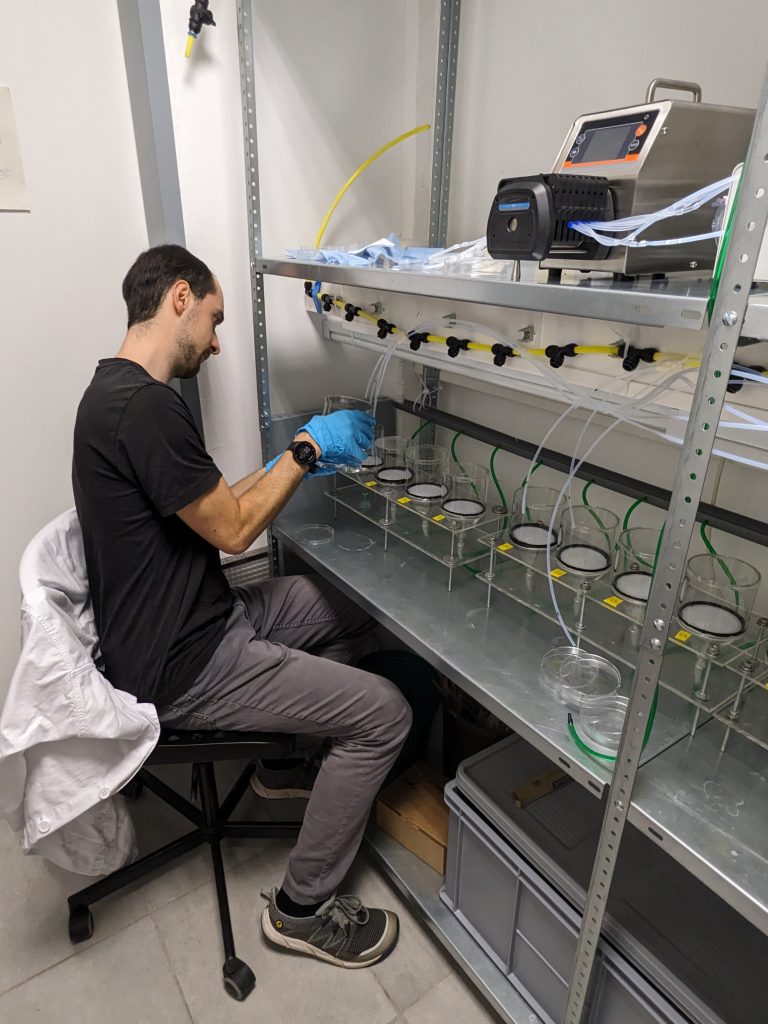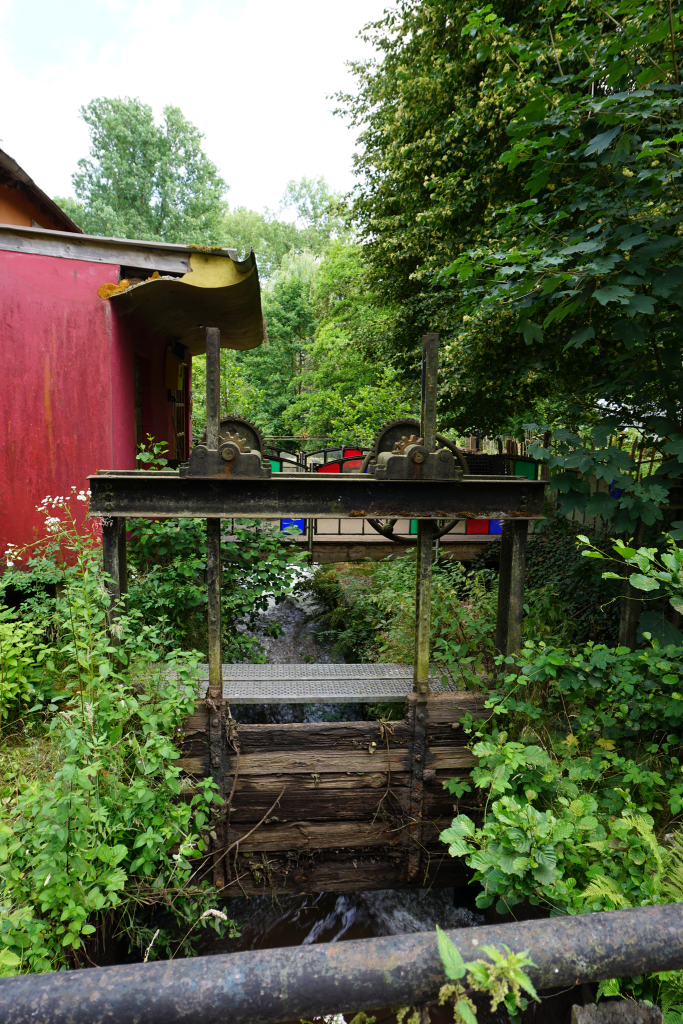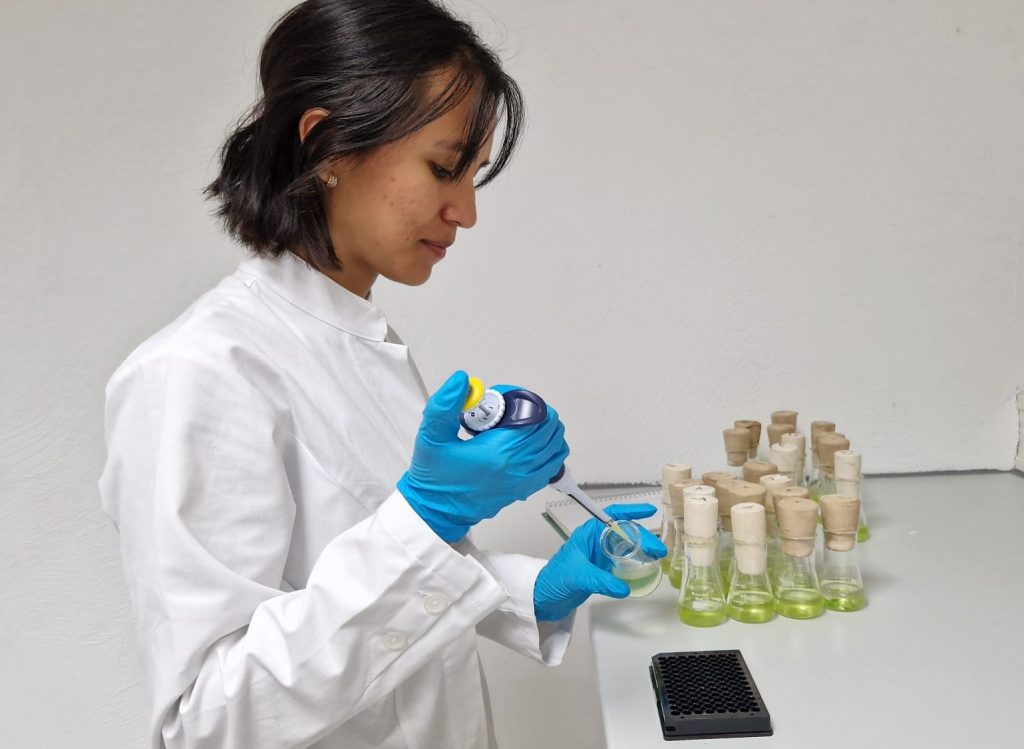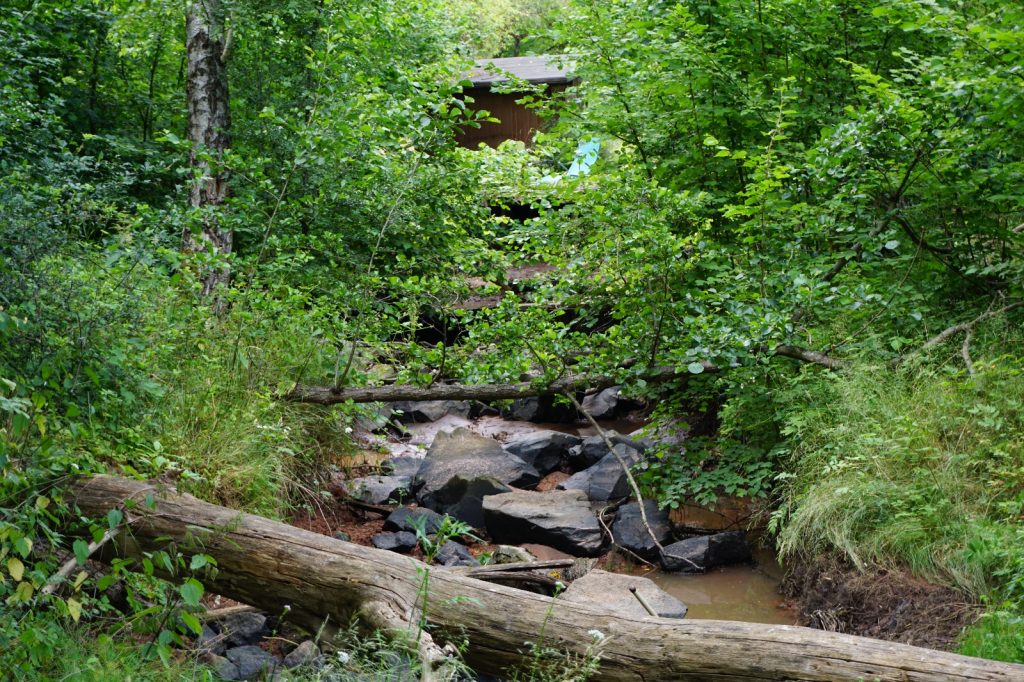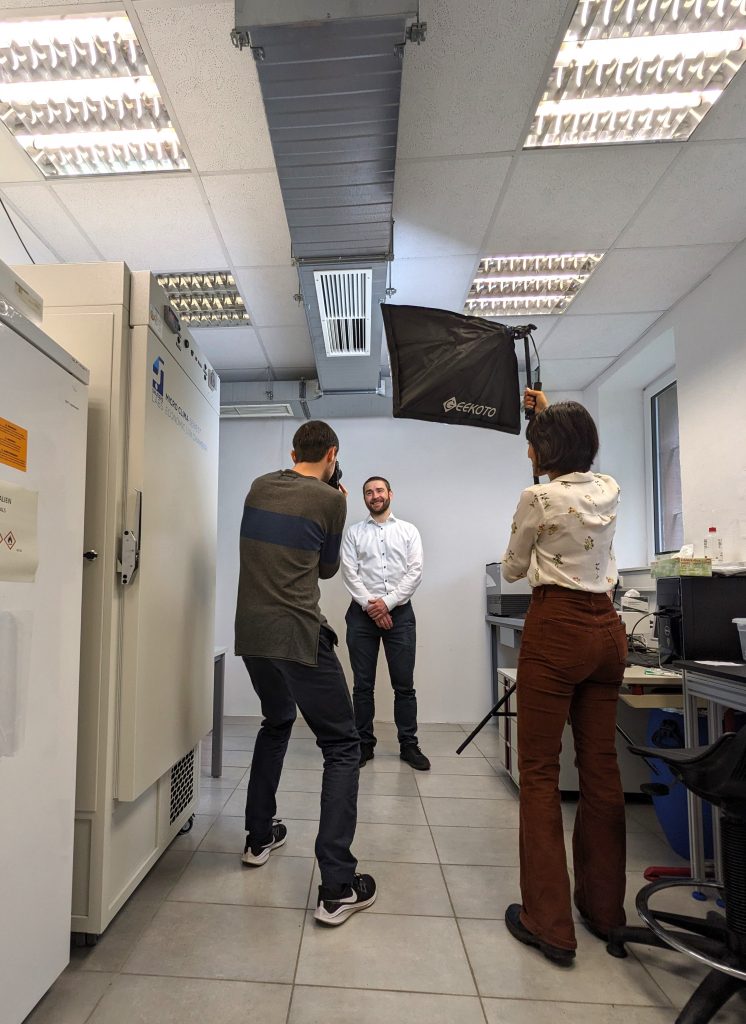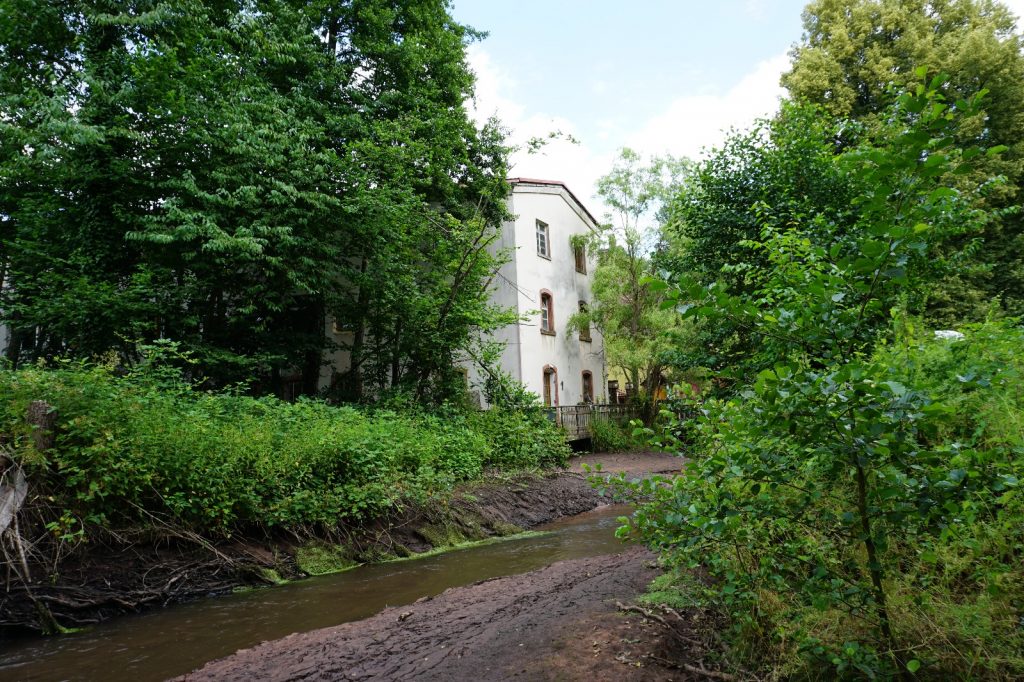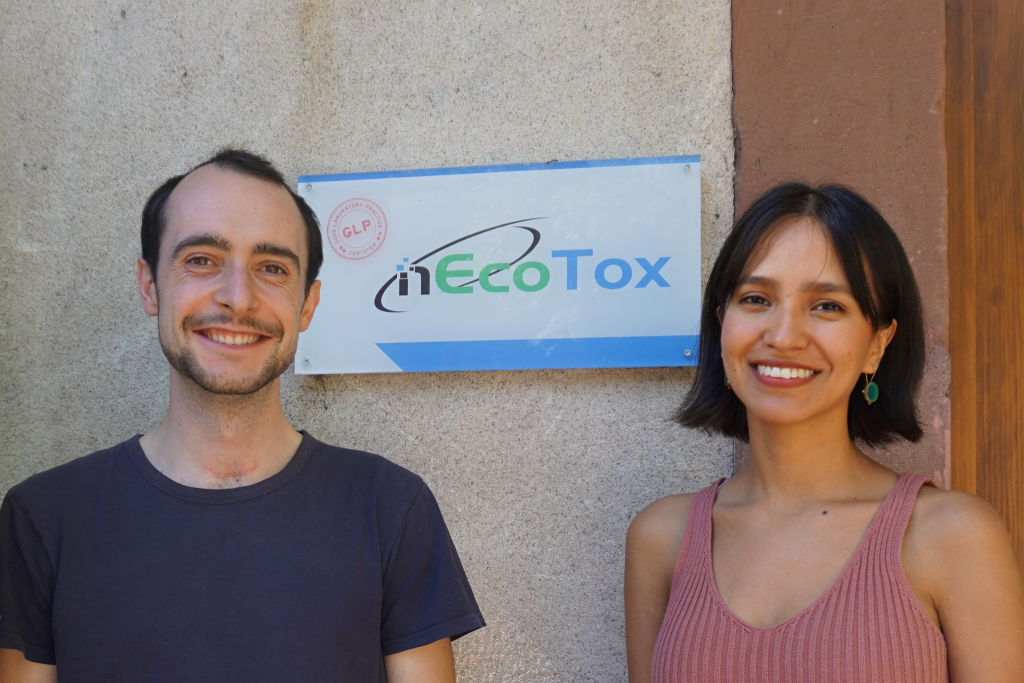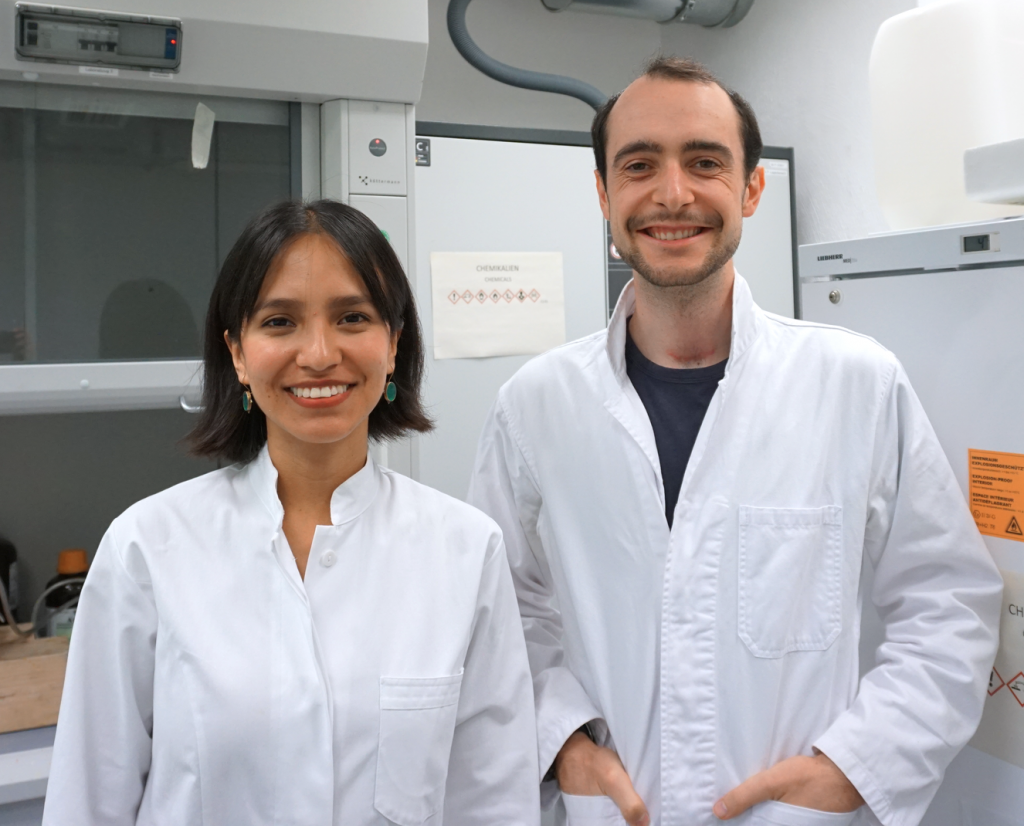In this blogpost, Veronica Rodriguez and Lorenz Witt share their internship experience at nEcoTox, Germany. Students of the Environmental Pollution Management (Ecotoxicology) Program complete an 8-week internship each year, the so-called “AMEO”. The AMEO is performed either at an external university, governmental or industrial research institute where students learn to apply the competences achieved during their study. Students also use this opportunity to travel and explore Germany.
“As students eager to apply our theoretical knowledge in the real world, our AMEO at nEcoTox was the perfect opportunity. This innovative company, founded by a Ph.D. graduate from RPTU (Campus Landau), is located near Albersweiler and is conveniently accessible by train, bus and even by bike from Landau. nEcoTox is a small but rapidly growing company that specializes in testing nanomaterials. Coincidentally, we joined at the same time when the company received their official GLP certificate, and there was need for new testing setups. Our internship experience can be broadly divided into two parts, each offering unique challenges and insights.
In the first part, we shared common tasks. We analyzed transmission electron microscopy (TEM) images. Within these images, nanoparticles had to be identified and measured, with a special focus on single and free particles. Furthermore, we were introduced to general lab duties like calibration of devices, preliminary tests and sample preparations.
The second part of our internship led us down different paths. Lorenz was responsible for setting up a chronic Daphnia study according to OECD guideline 211, while Veronica had to establish an acute toxicity test for algae according to OECD guideline 201. These efforts involved a series of different steps – from studying the guidelines and writing an SOP (standard operation procedure) to validating the study. Setting up the chronic daphnia study particularly required meticulous planning, as it involved ordering the necessary parts and assembling them to create a final setup. At last, the whole setup was working and ready for validation. Conducting this study was time-consuming, as data must be collected every day, for 21 days – yes, this implied working also on the weekend. While acute toxicity tests are considerably shorter than chronic tests, establishing a standardised procedure for the algae test presented its own set of challenges as the aim was to prevent and rectify any potential issues for future GLP studies.
Interning at nEcoTox was not only about work. The company created a supportive and collaborative environment, which was evident through our weekly GLP meetings and daily lunch breaks in the conference room. These breaks provided us with a chance to interact with the rest of the team and discuss not just scientifc, but also other peculiar and interesting topics. And when we needed fresh air, stepping outside the main entrance of the company led us into the woods, as nEcoTox is situated in a historic mill building, surrounded by the beauty of nature. It was not unusual to spot wildlife, ranging from fish to kingfishers and even one turtle (sadly an invasive species).
nEcoTox provided the perfect blend of challenging tasks, enriching breaks and the autonomy to define and perform our own responsibilities. This made it an ideal place to enhance our laboratory skills and gain insights into the world of applied ecotoxicology beyond the university.”
Here are some beautiful glimpses from Veronica and Lorenz’s AMEO:-
